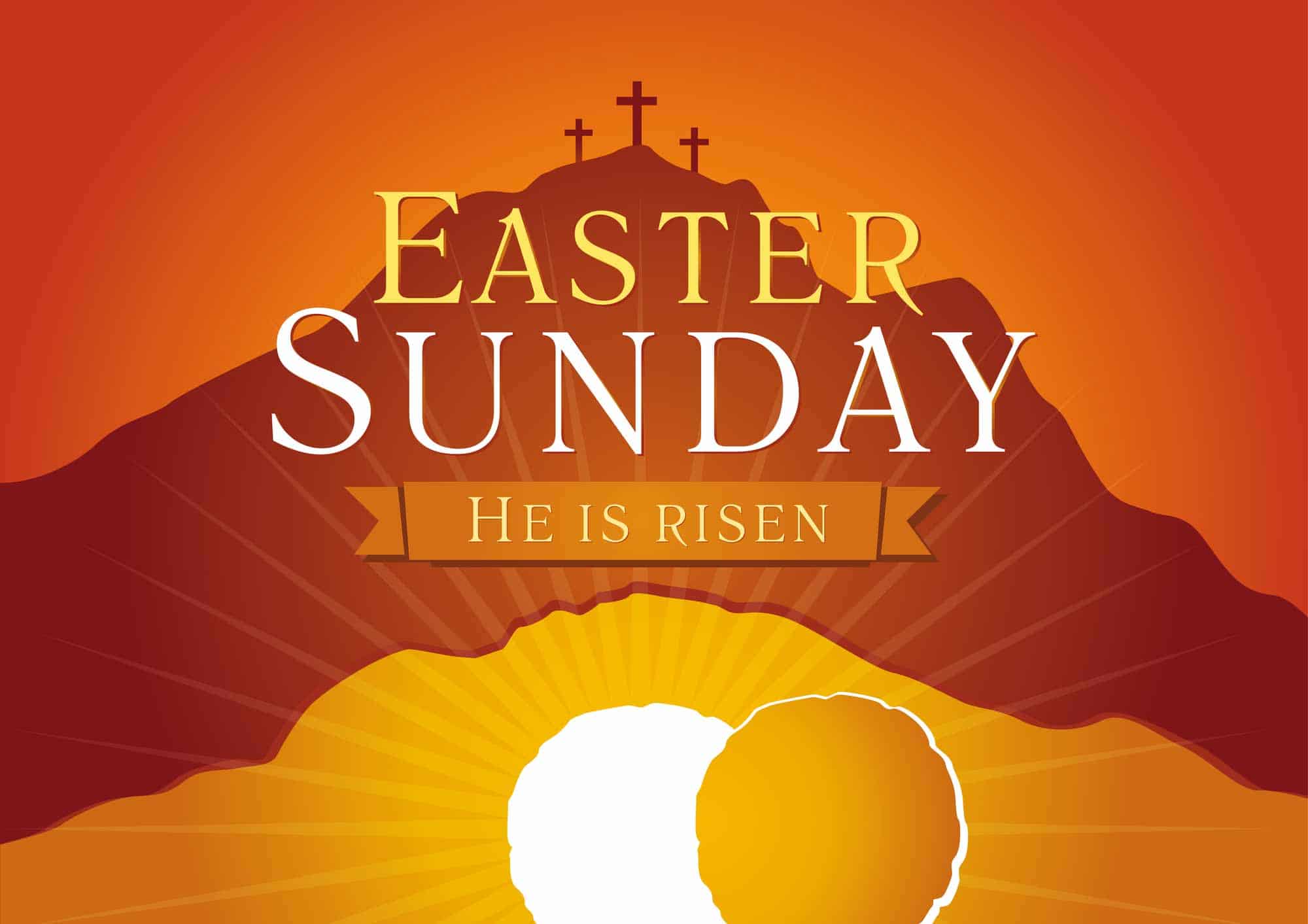Easter thoughts
Dear Friends,
The roots of our Easter Day Ceremonies at St Peter’s can be found in the ancient practice of a dawn vigil. It is a beautiful and moving liturgy that begins in darkness around a bonfire, as the faithful gather to listen to stories from the Old Testament that tell of God’s creative deeds.
Beginning in the watery gloom, in the depths of human consciousness, we hear how the fountains of the great deep burst and a flood continued for 40 days that covered the whole earth.
We hear how Noah’s ark floated on the face of the waters; how the Israelites were freed from slavery in Egypt and brought through the waters of the Red Sea to the promised land, after 40 years of wandering in the wilderness.
We listen to how a remnant of God’s people were brought back to the holy city of Jerusalem after 400 years in captivity in Babylon. Siesmic events, never imagined or barely believed possible, that brought life-changing experiences for the whole of humanity.
When the storytelling has ended, a light is taken from the fire to the great Easter candle and carried into the dark church while the whole congregation takes a light from it. As the darkness is filled with the light of countless candles, ancient hymns to the God of all creation are sung.
The Easter Ceremonies each year carry us through this act of creation. In the darkness we are reformed, renewed, refreshed. The darkness yields to the light. The darkness and the light become one. The psalmists sang that God is both darkness and light. God is in all things. There is no part of this world, no part of human experience that God cannot enter and transform.
In the early western church, Easter Day was the appointed time for baptisms. Every baptism reminds us of these ancient stories of creation and re-creation and how we are brought from darkness into God’s marvellous light – throughout life, for all time.
Today the whole congregation is invited to renew their baptismal promises as part of the Easter ceremonies.
The Dutch spiritual writer, Henri Nouwen, understood the power of the resurrection in the darkness of Holy Saturday.
‘On the seventh day of the week, when Jesus had fulfilled all that he was sent by his Father to do, he rested in the tomb, and the women whose hearts were broken with grief rested with him. The Paschal Sabbath is the day on which the whole creation waits in deep rest. It is the day on which, in the traditions of the church, no words are spoken, no proclamations made.
‘The Word of God lies buried in the darkness of the earth. This divine silence is the most fruitful silence that the world has ever known. From this silence, the Word is to be spoken again and all things are to be made new’.
May we all rest in the darkness of God, as we wait for the Word to be spoken again and for the whole Church to once again resound with joy.
With my love and blessings
Julia
Listen to Dorothy singing the Easter Exsultat:






